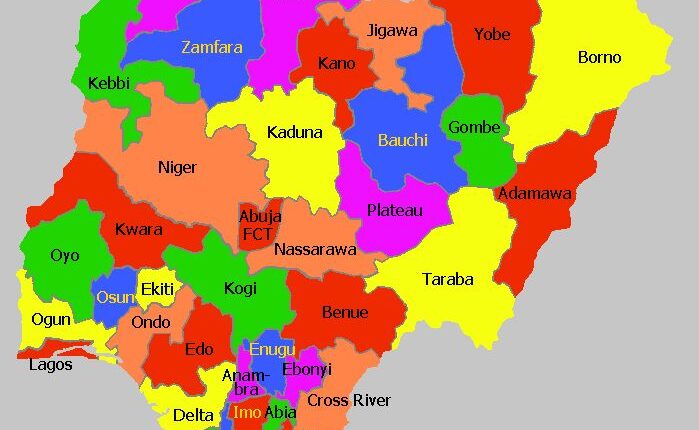Report Lists Zamfara, Kwara, Benue as Worst-Governed

A new governance assessment/report has placed Zamfara, Kwara, and Benue States at the bottom of Nigeria’s leadership ranking, describing them as the worst-governed States in the Country.
The findings were contained in the UK-based Good Governance Rating Index (GGRI) mid-term review, which examined State performance across Nigeria between May 2023 and August 2025.
The comprehensive report assessed leadership and accountability in six key areas — Health, Education, Infrastructure, Security, Economic management, and Transparency.
According to GGRI, while several States showed gradual progress in governance delivery, Zamfara, Kwara, and Benue performed far below National averages, leaving millions of citizens vulnerable to insecurity, poverty, and weak social services.
Zamfara: Worst Overall Ranking
Zamfara State, governed by Dauda Lawal, was ranked the poorest-managed State Nationwide.
The report highlighted worsening insecurity, mass abductions, and rampant armed banditry as major impediments to governance.
Many rural Communities remain deserted, while public infrastructure has collapsed.
Education in Zamfara has been described as “critically weak,” with rural children having little to no access to schooling, while maternal and infant mortality rates remain among the highest in Nigeria.
Citizens interviewed for the survey lamented that despite billions of naira in allocations, there is little or no visible development.
Kwara: Development Stagnation
Kwara State, under Governor AbdulRahman AbdulRazaq, ranked just above Zamfara but still far below National standards.
The State, once considered relatively stable, is now grappling with stagnant economic growth, crumbling infrastructure, and inadequate public investment.
The GGRI report notes that roads are in disrepair, water supply is unreliable, and public schools and hospitals are underfunded and ill-equipped.
Civil society groups within the State accused the government of neglecting rural development, while environmental degradation, poor waste management, and weak Local Government structures continue to hinder progress.
Benue: Infrastructural Collapse and Humanitarian Strain
Benue State, led by Governor Hyacinth Alia, fared only marginally better than Kwara, with the report pointing to a near collapse of rural infrastructure.
Many primary schools, hospitals, and health centres are abandoned or completely nonfunctional.
The State is also battling the twin crises of insecurity and displacement, as frequent attacks on rural communities have forced thousands of residents into camps for internally displaced persons (IDPs).
The humanitarian strain, coupled with worsening poverty, has left the State struggling without a clear developmental roadmap.
National Implications
The GGRI warns that the failures in Zamfara, Kwara, and Benue are not isolated but reflect a wider crisis of governance in Nigeria.
The report stressed that the growing gap between state revenues and service delivery is fuelling public distrust in democratic institutions.
It further warned that without urgent reforms, the States risk further economic decline, population displacement, and increased instability, which could spill over into other regions.
To reverse the decline, the GGRI urged the three States — and Nigeria as a whole — to:
Establish stronger accountability systems for tracking how public funds are spent.
Prioritise investment in health and education, especially in rural and underserved communities.
Design tailored security strategies to combat unique Local challenges such as banditry in Zamfara and communal attacks in Benue.
Promote citizen participation and oversight, ensuring transparency in governance.
The Governors of Zamfara, Kwara, and Benue are yet to formally respond to the damning report.
However, civil society groups across Nigeria have welcomed the findings, saying they validate citizens’ daily experiences of poor leadership and declining standards of living.
Activists have called on both the Federal and State Government to treat the report as a wake-up call, noting that unless urgent steps are taken, governance failures will continue to deepen poverty, insecurity, and discontent among Nigerians.
The GGRI, which publishes its governance ratings every two years, said that while challenges are daunting, improvements are possible if political leaders demonstrate commitment to reform.
For now, Zamfara, Kwara, and Benue remain at the bottom of the governance table — a stark reminder of Nigeria’s pressing need for accountable and people-centered leadership.


